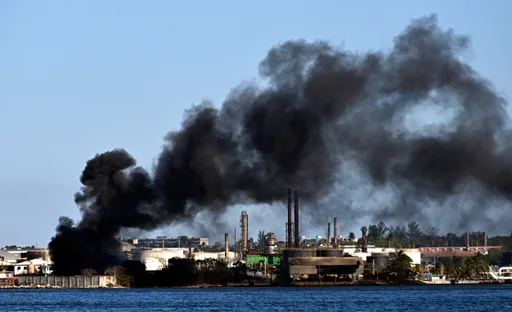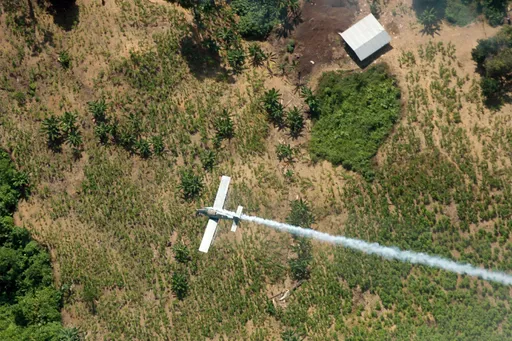Authorities are putting in place an extensive security mechanism for the May 14presidential and parliamentary elections in Türkiye, hailed as one of the most crucial votesin the nation’s history.
The Supreme Electoral Council (YSK) – the country’s top election body – will oversee the massive democratic process till the final vote is counted and the winners identified.
As campaigning hits top gear and the voters get ready to elect their next president and parliamentarians, we break down the complex process of ensuring free and fair elections in Türkiye.
READ MORE:Türkiye's presidential, parliamentary polls will be held on May 14: Erdogan
Peace and security
According to the Turkish Interior Ministry, on election day, approximately 600,000 security personnel will work across 81 provinces to ensure the security of the elections, including 326,387 police officers, 196,197 gendarmes, 7,000 coast guards, 58,658 security guards, and 17,209 voluntary security guards.
In addition, a network of surveillance cameras mounted at strategic locations will keep an eye out for potential troublemakers.
As in past elections, the footage from the surveillance cameras and all data related to election security will be monitored and analysed in real-time at the Election Security Coordination Centre of the General Directorate of Security, the national civilian police force headquartered in Ankara.
In the last national election, over 50 thousand cameras ceaselessly streamed video from junctions, important points and the routes used by people to reach the voting centres.
Officials at the centre, who start working early on election day, will continue their duties until the vote-counting process is completed.
As part of the security arrangements, the sale and consumption of alcoholic beverages have been banned in public places on election day from 6 am until midnight.
No person other than those responsible for maintaining law and order will be allowed to carry firearms, explosives and all kinds of cutting, piercing or bludgeoning tools that can be used as a weapon.
International observers
Representatives from several global organisations will oversee the May elections on invitation from President Recep Tayyip Erdogan’s government, carrying on a tradition that began in 2002.
Representatives of the Security and Co-operation in Europe (OSCE), the Shanghai Cooperation Organisation (SCO), the Parliamentary Assembly of the Council of Europe (PACE), 10 from the Parliamentary Assembly of the Mediterranean (PAM), 5 from the Parliamentary Assembly of the Black Sea Economic Cooperation (PABSEC), Parliamentary Assembly of Turkic-Speaking Countries (TURKPA) and the Organisation of Turkic States (then-Turkic Council) served as neutral observers during past presidential, parliamentary, and local elections.
During the 2018 presidential and parliamentary elections, the OSCE’s international election observation mission comprised some 330 observers from 44 countries, including 231 long-term and short-term observers.
According to international observers, all elections held in Türkiye since 2002 have been transparent, free, pluralistic, and fair in accordance with international standards.
Counting of votes
In the latest elections, 188,000 ballot boxes were used in 87 electoral districts nationwide as well as abroad, according to the Supreme Electoral Council.
After citizens cast their votes and the polls close, counting and documentation take place openly under the control of a ballot box chairman and with the participation of representatives from all political parties contesting the election.
Each box is opened by the chairman in front of those present at the voting place, and the envelopes containing individual ballots are counted aloud and twice by the chairman.
Representatives of the political parties sign on the sheet after they all agree on the result.
The ballot box is not taken out of the voting centre until counting and documentation of all ballot boxes across the country are completed.
Valid ballot papers, signed counting and breakdown charts, invalid and contested ballot papers, unused ballot envelopes, and ballot papers are packed separately, put in a bag after being approved by all representatives, and finally signed and sealed by the ballot box committee.
The sealed bags are delivered to the chairman of the district election council as soon as possible by at least two members accompanied by the security forces.
Finally, the district election council combines all the election results obtained from the ballot box committees and notifies the provincial election council presidency and political parties about the results.
Voting in quake-hit regions
One of the biggest challenges for the Supreme Electoral Council is to ensure that voters in the 11 provinces devastated in the February 6 twin earthquakes can take part in the democratic process.
Over the past few weeks, several delegations of the YSK have visited the quake-hit region to take stock of the situation and access what is needed to conduct the elections.
The delegations are preparing reports on the situation of the affected voters, documenting those who have been evacuated to other cities, and accessing potential security measures, among other things.
The process is ongoing, and reports are being sent to the YSK.
According to official reports, efforts are being made to allow voting in tent and container cities. It is also considering setting up voting centres in containers.
Earthquake victims who are injured, unable to go to vote, experiencing transportation problems, or unable to travel due to their age are being offered the option to vote at a mobile voting centre.
Deferring to nearby ballot boxes in areas where voting cannot take place is also among the options being considered.
Citizens who have lost their identity cards due to the earthquakes can vote without their IDs, as long as they have other documents, such as a temporary identity card, passport, marriage certificate, driver's license, military service document, professional identity card or military identity card.
Earthquake victims will also be able to vote in the cities where they have been relocated.
A directive is also expected to be issued to allow AFAD workers to vote in the city they are working at present.






















